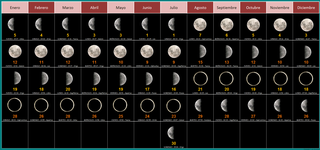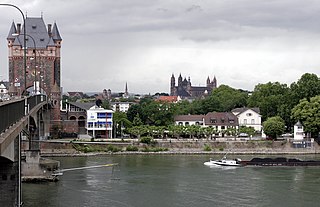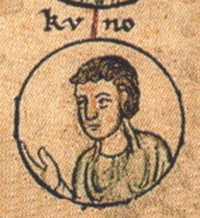Synod of Worms or Council of Worms may refer to:
| This disambiguation page lists articles associated with the title Synod of Worms. If an internal link led you here, you may wish to change the link to point directly to the intended article. |
Synod of Worms or Council of Worms may refer to:
| This disambiguation page lists articles associated with the title Synod of Worms. If an internal link led you here, you may wish to change the link to point directly to the intended article. |

The First Council of the Lateran was the 9th ecumenical council recognized by the Catholic Church. It was convoked by Pope Callixtus II in December 1122, immediately after the Concordat of Worms. The council sought to bring an end to the practice of the conferring of ecclesiastical benefices by people who were laymen, free the election of bishops and abbots from secular influence, clarify the separation of spiritual and temporal affairs, re-establish the principle that spiritual authority resides solely in the Church and abolish the claim of the emperors to influence papal elections.

A lunar calendar is a calendar based on the monthly cycles of the Moon's phases, in contrast to solar calendars, whose annual cycles are based only directly on the solar year. The most commonly used calendar, the Gregorian calendar, is a solar calendar system that originally evolved out of a lunar calendar system. A purely lunar calendar is also distinguished from a lunisolar calendar, whose lunar months are brought into alignment with the solar year through some process of intercalation. The details of when months begin varies from calendar to calendar, with some using new, full, or crescent moons and others employing detailed calculations.

Pope Callixtus II or Callistus II, born Guy of Burgundy, was head of the Catholic Church and ruler of the Papal States from 1 February 1119 to his death in 1124. His pontificate was shaped by the Investiture Controversy, which he was able to settle through the Concordat of Worms in 1122.

Worms is a city in Rhineland-Palatinate, Germany, situated on the Upper Rhine about 60 kilometres (40 mi) south-southwest of Frankfurt-am-Main. It had approximately 82,000 inhabitants as of 2015.

Year 1076 (MLXXVI) was a leap year starting on Friday of the Julian calendar.

Pope Leo IX, born Bruno of Egisheim-Dagsburg, was the bishop of Rome and ruler of the Papal States from 12 February 1049 to his death in 1054. Leo IX is widely considered the most historically significant German pope of the Middle Ages; he was instrumental in the precipitation of the Great Schism of 1054, considered the turning point in which the Catholic and Eastern Orthodox Churches formally separated. He is venerated as a saint in the Catholic Church.

A synod is a council of a church, usually convened to decide an issue of doctrine, administration or application. The word synod comes from the Greek: σύνοδος [ˈsinoðos] meaning "assembly" or "meeting" and is analogous with the Latin word concilium meaning "council". Originally, synods were meetings of bishops, and the word is still used in that sense in Catholicism, Oriental Orthodoxy and Eastern Orthodoxy. In modern usage, the word often refers to the governing body of a particular church, whether its members are meeting or not. It is also sometimes used to refer to a church that is governed by a synod.
An edict is a decree or announcement of a law, often associated with monarchism, but it can be under any official authority. Synonyms include dictum and pronouncement.

Frederick III, also known as Frederick the Wise, was Elector of Saxony from 1486 to 1525, who is mostly remembered for the worldly protection of his subject Martin Luther.

Guibert or Wibert of Ravenna was an Italian prelate, archbishop of Ravenna, who was elected pope in 1080 in opposition to Pope Gregory VII and took the name Clement III. Gregory was the leader of the movement in the church which opposed the traditional claim of European monarchs to control ecclesiastical appointments, and this was opposed by supporters of monarchical rights led by the Holy Roman Emperor. This led to the conflict known as the Investiture Controversy. Gregory was felt by many to have gone too far when he excommunicated the Holy Roman Emperor Henry IV and supported a rival claimant as emperor, and in 1080 the pro-imperial Synod of Brixen pronounced that Gregory was deposed and replaced as pope by Guibert.
The Lateran councils were ecclesiastical councils or synods of the Catholic Church held at Rome in the Lateran Palace next to the Lateran Basilica. Ranking as a papal cathedral, this became a much-favored place of assembly for ecclesiastical councils both in antiquity and more especially during the Middle Ages.
The Ubiquitarians, also called Ubiquists, were a Protestant sect that held that the body of Christ was everywhere, including the Eucharist. The sect was started at the Lutheran synod of Stuttgart, 19 December 1559, by Johannes Brenz (1499–1570), a Swabian. Its profession, made under the name of Duke Christopher of Württemberg and entitled the "Württemberg Confession," was sent to the Council of Trent in 1552, but had not been formally accepted as the Ubiquitarian creed until the synod at Stuttgart.

Conrad I, a member of the Salian dynasty, was Duke of Carinthia from 1004 until his death.
The Martyrs' Synod took place in Augsburg, Germany, from 20 to 24 August 1527. The purpose of this meeting, attended by about sixty representatives from different Anabaptist groups, was to come to agreement over the differences related to the central Anabaptist teachings among the Swiss and south German Anabaptists.
SolomonI was the Bishop of Constance from an unknown date between 835 and 847 until his death. He was the first of an "episcopal dynasty" which ruled Constance until 919 and briefly held the Diocese of Freising from 884 until 906 and that of Chur from 913 until 949.

The Synod of Worms was an ecclesiastical synod and imperial diet (Hoftag) convened by the German king and emperor-elect Henry IV on 24 January 1076, at Worms. It was intended to agree a condemnation of Pope Gregory VII, and Henry's success in achieving this outcome marked the beginning of the Investiture Controversy.

Worms are many different distantly related animals that typically have a long cylindrical tube-like body, no limbs, and no eyes. Worms vary in size from microscopic to over 1 metre (3.3 ft) in length for marine polychaete worms, 6.7 metres (22 ft) for the African giant earthworm, Microchaetus rappi, and 58 metres (190 ft) for the marine nemertean worm, Lineus longissimus. Various types of worm occupy a small variety of parasitic niches, living inside the bodies of other animals. Free-living worm species do not live on land, but instead, live in marine or freshwater environments, or underground by burrowing. In biology, "worm" refers to an obsolete taxon, vermes, used by Carolus Linnaeus and Jean-Baptiste Lamarck for all non-arthropod invertebrate animals, now seen to be paraphyletic. The name stems from the Old English word wyrm. Most animals called "worms" are invertebrates, but the term is also used for the amphibian caecilians and the slowworm Anguis, a legless burrowing lizard. Invertebrate animals commonly called "worms" include annelids, nematodes (roundworms), platyhelminthes (flatworms), marine nemertean worms, marine Chaetognatha, priapulid worms, and insect larvae such as grubs and maggots.
In the Catholic Church, the Synod of Bishops, considered as an advisory body for the pope, is one of the ways in which the bishops render cooperative assistance to him in exercising his office. It is described in the Code of Canon Law (CIC) as "a group of bishops who have been chosen from different regions of the world and meet together at fixed times to foster closer unity between the Roman Pontiff and bishops, to assist the Roman Pontiff with their counsel in the preservation and growth of faith and morals and in the observance and strengthening of ecclesiastical discipline, and to consider questions pertaining to the activity of the Church in the world."
The Synod of Brixen was a church council held on 15 June 1080 in the episcopal city of Brixen. It was convoked by King Henry IV of Germany at the height of the Investiture Controversy to pass judgement on Pope Gregory VII. The synod issued a decree condemning the pope, demanding his abdication and authorizing his deposition if he refused. The synod also elected his successor, Wibert of Ravenna.
The Synod of Worms of May 868 was a council of the church in East Francia convoked by King Louis the German at the request of Pope Nicholas I. It condemned the Synod of Constantinople of 867 as heretical and condemned Great Moravia for rebelling against Louis.